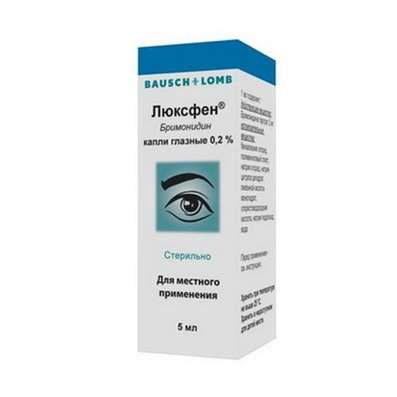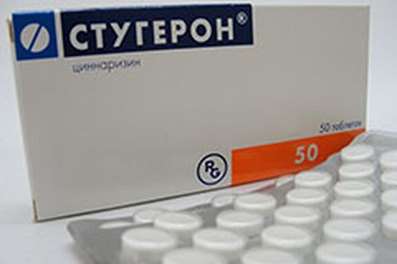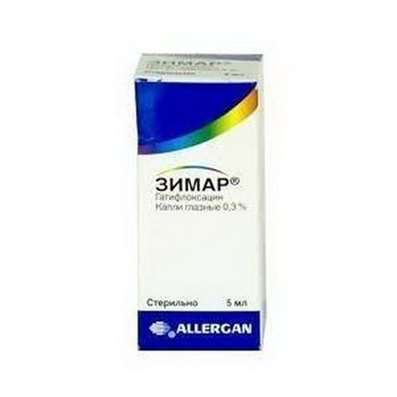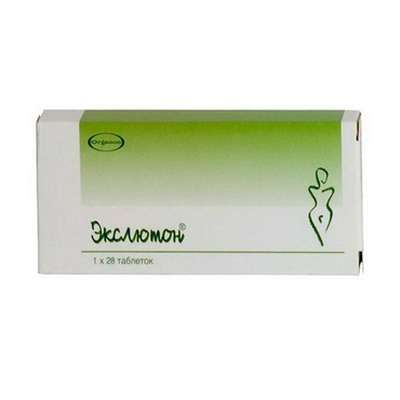Instruction for use: Trankvezipam
I want this, give me price
Trade name of the drug – Trankvezipam
Active substance: Bromdihydro-chlorphenyl-benzodiazepine (Bromdihydro-chlorphenyl-benzodiazepinum)
Chemical rational name: 7-Bromo-5- (2-chlorophenyl) -1,3-dihydro-2H-1,4-benzodiazepin-2-one
Dosage Form: tablet, solution for injection
Composition
Solution for in / and the / m, 1 ml contains: Bromdihydro-chlorphenyl-benzodiazepine - 1 mg. issuance: rr d / in / and the / m: ampoule (5) - packings planimetric (2) - packs cardboard; Table .: 500 mg or 1 mg - 50 units.
Description of Trankvezipam
The drug forms
Capsules: Hard gelatin size ¹0, white containing powder from white to white with a little shade.
Pharmacotherapeutic group: Anxiolytic (tranquilizer)
ATX Code
N05BX Anxiolytics other
Pharmacological Properties of TrankvezipamPharmachologic effect
Anxiolytic (tranquilizer) benzodiazepine. It has anxiolytic, sedative-hypnotic, anticonvulsant and central muscle relaxant effect.It increases the inhibitory effect of GABA in the transmission of nerve impulses. It stimulates benzodiazepine receptors located in the allosteric center of postsynaptic GABA-receptor ascending activating reticular formation of the brain stem and lateral horn neurons of the spinal cord; reduces the excitability of the subcortical structures of the brain (the limbic system, thalamus, hypothalamus), polisinapticheskie inhibits spinal reflexes.The anxiolytic effect is due to the influence on the amygdala of the limbic system and manifests itself in the reduction of emotional stress, easing anxiety, fear, anxiety.
Sedation due to the influence on the reticular formation of the brain stem and the nonspecific thalamic nuclei and manifested a decrease in symptoms of neurotic origin (anxiety, fear).
On the productive psychotic symptoms genesis (acute delusional, hallucinatory, affective disorders) has practically no effect, it is rarely observed decrease in affective intensity, delusional disorders.
Hypnotic effects associated with inhibition of the cells of the reticular formation of the brain. It reduces the impact of emotional, autonomic and motor stimuli that disturb sleep.Anticonvulsant action is realized by increasing presynaptic inhibition suppresses the spread of seizure pulse, but not removed the excited state of the hearth. Central muscle relaxant effect is due to inhibition of polysynaptic spinal afferent inhibitory ways (to a lesser extent and monosynaptic). Perhaps, and direct inhibition of motor nerve and muscle function.
Pharmacokinetics
After oral administration, it is well absorbed from the gastrointestinal tract, the time to reach maximum concentration -. 1-2 hours is metabolized in the liver. The half - 10/06/18 h.
Extract by mainly kidneys as metabolites.
Indications for Trankvezipam
- Neurotic, neurosis, psychotic, psychopathic and other state (irritability, anxiety, nervousness, emotional lability).
- Reactive psychosis and senesto-hypochondriacal disorders (including those resistant to the action of other anxiolytics);
- Abstinence syndrome (alcoholism, drug addiction);
- Seizures (different etiology), temporal and myoclonic epilepsy;
- Insomnia, obsession;
- Antipsychotic schizophrenia with increased sensitivity to antipsychotics (including febrile form);
- Neurology: muscle rigidity, athetosis, hyperkinesis, tic, vegetative lability (paroxysms sympathoadrenal and mixed character);
- Anesthesiology - premedication (as a component of induction of anesthesia);
- In the extreme conditions as a means of facilitating the overcoming of fear and emotional stress.
Contraindications for Trankvezipam
Coma, shock, myasthenia gravis, angle-closure glaucoma (acute onset or predisposition), acute alcohol poisoning (with the weakening of vital functions), narcotic analgesics and hypnotics, severe COPD (possibly increasing respiratory failure), acute respiratory failure, severe depression (may occur suicidal tendencies); I trimester of pregnancy, lactation, childhood and adolescence to 18 years (the safety and effectiveness are not determined), hypersensitivity (including from other benzodiazepines).
Trankvezipam Dosage and Administration
V / m or / in (bolus or infusion) for quick relief of fear, anxiety, psychomotor agitation, as well as autonomic epileptic and psychotic states, the initial dose - 0.5-1 mg average daily dose - 3-5 mg in severe cases - to 7-9 mg.Inside: sleep disorders - 250-500 mg 20-30 minutes before bedtime. For the treatment of neurotic, psychotic, and psihopatopodobnyh initial dose - 0.5-1 mg 2-3 times a day. After 2-4 days based on efficacy and tolerability the dose may be increased to 4-6 mg / day. In severe agitation, fear, anxiety, treatment is initiated with a dose of 3 mg / day, quickly increasing the dose to produce a therapeutic effect. In the treatment of epilepsy - 2.10 mg / day.
For the treatment of alcohol withdrawal - inside, at 2-5 mg / day, or / m, 500 g 1-2 times / day, with vegetative paroxysms - / m, 0.5-1 mg. The average daily dose - 1.5-5 mg, it is separated into 2-3 doses, usually 0.5-1 mg in the morning and afternoon and 25 mg at bedtime. In neurological practice for diseases with muscle hypertonicity appoint 2-3 mg 1-2 times / day. The maximum daily dose - 10 mg.
In order to avoid the development of drug dependence at course treatment duration Phenazepam application is 2 weeks (in some cases the duration of treatment can be increased up to 2 months). If you cancel Phenazepam reduce the dose gradually.
Side effect of Trankvezipam
From the central and peripheral nervous system: at the beginning of treatment (particularly in elderly patients) - drowsiness, fatigue, dizziness, decreased ability to concentrate, ataxia, disorientation, unsteady gait, slowing of mental and motor reactions, confusion; rarely - headache, euphoria, depression, tremors, memory loss, poor coordination of movements (particularly at high doses), depressed mood, dystonic extrapyramidal reactions (uncontrolled movements, including eye), asthenia, myasthenia gravis, dysarthria, seizures (in epilepsy patients); very rarely - paradoxical reaction (aggressive outbursts, agitation, anxiety, suicidal tendencies, muscle spasms, hallucinations, agitation, irritability, anxiety, insomnia).
From the side of hematopoiesis: leukopenia, neutropenia, agranulocytosis (chills, pyrexia, sore throat, extreme tiredness or weakness), anemia, thrombocytopenia.
From the digestive system: dry mouth or salivation, heartburn, nausea, vomiting, loss of appetite, constipation or diarrhea; abnormal liver function, increased activity of hepatic transaminases and alkaline phosphatase, jaundice.
From the urogenital system: urinary incontinence, urinary retention, renal dysfunction, decreased or increased libido, dysmenorrhea. Allergic reactions: skin rash, pruritus. Local reactions: phlebitis or venous thrombosis (redness, swelling or pain at the injection site).
Other: addiction, drug dependency; decrease in blood pressure; rarely - blurred vision (diplopia), weight loss, tachycardia.
With a sharp decrease in dose or discontinuation - withdrawal symptoms (irritability, nervousness, sleep disturbances, dysphoria, a spasm of smooth muscles of internal organs and skeletal muscles, depersonalization, increased sweating, depression, nausea, vomiting, tremors, disorders of perception, in t / h. . hyperacusis, paresthesia, photophobia, tachycardia, seizures, rare - acute psychosis).
Pregnancy and breast-feeding
In pregnancy, the use is possible only for health reasons. It has a toxic effect on the fetus and increase of birth defects when used in the I trimester of pregnancy. Reception at therapeutic doses in later stages of pregnancy can cause CNS depression in the neonate. The constant use during pregnancy may lead to physical dependence with the development of withdrawal symptoms in the newborn. Children, especially at a younger age, are very sensitive to the CNS depressant effects of benzodiazepines. Application just before birth or during labor may cause neonatal respiratory depression, decreased muscle tone, hypotension, hypothermia and a weak act of sucking (syndrome "flaccid child").
Overdose of Trankvezipam
Increased symptoms of side effects: severe drowsiness, nausea, vomiting, fatty liver degeneration (receiving more than 7 g), eosinophilia, decreased blood pressure, renal function. First aid - gastric lavage, activated charcoal and symptomatic therapy.
Interaction
In an application Phenazepamum reduces the effectiveness of levodopa in patients with Parkinson's disease.Phenazepam may increase the toxicity of zidovudine.
There mutual enhancement effect, while the use of antipsychotic, antiepileptic, or hypnotic drugs, as well as central muscle relaxants, narcotic analgesics, ethanol.
Inhibitors of microsomal oxidation increase the risk of toxic effects.
Inductors microsomal liver enzymes decrease the efficiency.
Increasing the concentration of imipramine in blood serum.
In an application with antihypertensive drugs may increase antihypertensive action.
Against the background of the simultaneous appointment of clozapine may increase the respiratory depression.
SPECIAL INSTRUCTIONS for Trankvezipam
Be wary of hepatic and / or renal failure, cerebral and spinal ataxia, drug dependency history, the propensity to abuse drugs, hyperkinesis, organic brain diseases, psychosis (possible paradoxical reactions), hypoproteinemia, sleep apnea (or suspected ) in elderly patients.
In renal and / or hepatic failure and long-term treatment is necessary to control the picture of peripheral blood and liver enzymes.
In patients not previously treated with psychoactive drugs, therapeutic response is observed in the application of Phenazepam at lower doses, compared with patients taking antidepressants, anxiolytics or suffering from alcoholism.
Like other benzodiazepines, it has the ability to cause drug dependency chronic administration in large doses (up to 4 mg / day). In a sudden discontinuation may experience withdrawal symptoms (including depression, irritability, insomnia, increased sweating), especially with a long reception (over 8-12 weeks.). If you have patients with such unusual reactions, as increased aggressiveness, acute state of excitement, anxiety, suicidal thoughts, hallucinations, increased muscle cramps, difficulty falling asleep, sleep surface, treatment should be discontinued.In the treatment of patients is strictly prohibited the use of ethanol.
The efficacy and safety of the drug in patients younger than 18 years have not been established.
When possible overdose severe drowsiness, prolonged confusion, decreased reflexes, prolonged dysarthria, nystagmus, tremor, bradycardia, dyspnea or shortness of breath, decreased blood pressure, coma. Recommended gastric lavage, activated charcoal; Symptomatic therapy (maintenance of respiration and blood pressure), administration of flumazenil (in the hospital); Hemodialysis is ineffective.Effects on ability to drive vehicles and management mechanisms
During the period of treatment must be careful when driving and occupation of other potentially hazardous activities that require high concentration and psychomotor speed reactions.
Storage conditions of Trankvezipam
In a dry, dark place at a temperature no higher than 25 ° C.
Keep out of the reach of children.
Shelf life
3 years.
Do not use beyond the expiration date printed on the package.
Conditions of supply of pharmacies
On prescription.

 Cart
Cart





